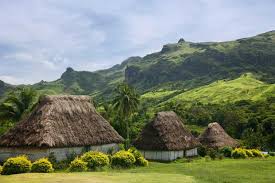Living and working in Fiji

Bula! (hello). Living in Fiji can be just about what you make it. It can be cheap or expensive depending on the lifestyle you chose to follow. If you want the city life but on a smaller scale, then Suva, the capital, is for you.
When I was reseaching an island to move to, Fiji kept popping up in the top five for cost of living, quality of life and friendliness of the people. But living in L.A. at the time, I knew I wanted a slower pace. To be on island time.
Suva is good though as a change from big city life to island size city life and from there you can find smaller quieter places not on the tourists tracks.
The capital offers night clubs, apartments and houses from $250 to “luxury” flats and homes ranging around $3500.
Sometimes, if you let the owner know you plan to live at the residence for a long time, you can work a deal. Other then that, they see your face and automatically think you have money.
There are a couple of big supermarkets that feature imported foods and products. The price is high. Almost $4 for a head of lettuce or cabbage from New Zealand or Australia.
You also have the traffic, noise and crowds in Suva. On the positive side, there are the government offices and the American Embassy and you get to mingle with mostly professional expats at the happy hour bars. Just stand on Victoria Parade, the main thoroughfare, and you’re bound to see if not a familiar face, a foreign one.
On the other side of Viti Levu, the main island and biggest of the group, is Nadi (Nan di), the jet city, called this, I imagine because it’s where the airport is. There are night clubs, a good supermarket and a small community of expats. Suva on a smaller scale. Lautoka, the sugar town, is north of Nadi, and called the sugar town because of the large amount of sugar cane farms and the ever present sugar train shugging through.
Interesting!